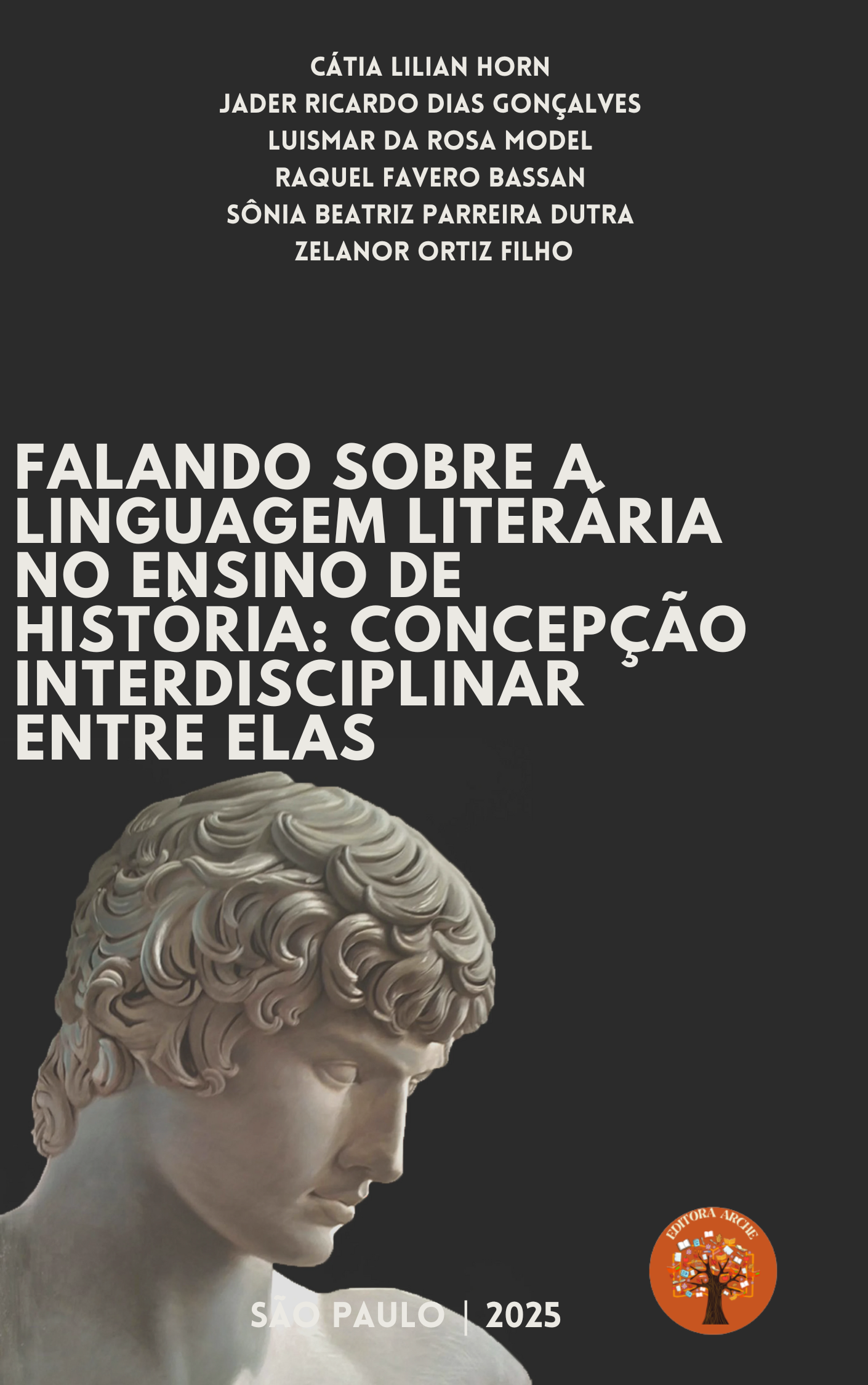TALKING ABOUT LITERARY LANGUAGE IN HISTORY TEACHING: INTERDISCIPLINARY CONCEPTION BETWEEN THEM
Keywords:
History. Literary Language. School.Abstract
The digital book Talking about Literary Language in History Teaching: Interdisciplinary Conception between Them emerges as an innovative and necessary proposal to reflect on the connections between two fundamental areas of human knowledge: Literature and History Teaching. By uniting these disciplines, the work seeks to explore how literary language can be a powerful tool to enrich the teaching of History, promoting an interdisciplinary approach that stimulates creativity, critical thinking and empathy in students.
Interdisciplinarity, the central theme of this book, is addressed in a practical and theoretical way, demonstrating how Literature and History can dialogue in a productive way. Literary language, with its richness of details, narratives and symbolism, offers a unique way to understand historical contexts, characters and events, making learning more dynamic and meaningful.
Organized in three chapters, the book takes the reader on a journey that begins with the understanding of Literature as an artistic expression, goes through the evolution of the History discipline and culminates in the practical application of literary language in history teaching. Each chapter was carefully designed to provide theoretical support, practical examples and reflections that contribute to a more integrated view of these areas of knowledge.
In Chapter 1, Discussing Literature, the reader is invited to explore the literary universe in its essence. This chapter addresses Literature as a cultural and artistic expression, highlighting its aesthetic, social and educational functions. By understanding the nature of literary language, the reader will be prepared to recognize its potential as a pedagogical resource, capable of awakening emotions, reflections and connections with the historical world.
Chapter 2, Brief History of the History Discipline, offers a detailed overview of the evolution of History teaching, from its origins to contemporary challenges. This chapter contextualizes the discipline, showing how it has changed over time and how it can be taught in a more engaging and critical way. Reflection on the trajectory of History as a field of study paves the way for discussion on the importance of interdisciplinary methods, such as the use of Literature, to make teaching more dynamic and relevant.
Finally, Chapter 3, Literary Language in History Teaching, is the heart of the book. Here, interdisciplinarity is put into practice, demonstrating how literary texts can be used to enrich the teaching of History. Through analyses and concrete examples, this chapter shows how novels, short stories, poems and other literary forms can help students understand complex historical contexts, develop empathy with characters from other eras and reflect critically on past events and their repercussions in the present.
This book is, above all, an invitation to reflection and action. It is intended for educators, researchers, students and all those who believe in the power of education to transform lives. By exploring the interdisciplinarity between Literature and History, the book seeks to inspire new pedagogical practices and contribute to a more meaningful, critical and integrated education.
May this reading be an incentive to rethink teaching and learning, valuing the richness of literary language and its ability to connect past, present and future.
Enjoy your reading!
The Authors,
Cátia Lilian Horn
Jader Ricardo Dias Gonçalves
Luismar da Rosa Model
Raquel Favero Bassan
Sônia Beatriz Parreira Dutra
Zelanor Ortiz Filho
Downloads

Downloads
Published
How to Cite
License
Atribuição CC BY
